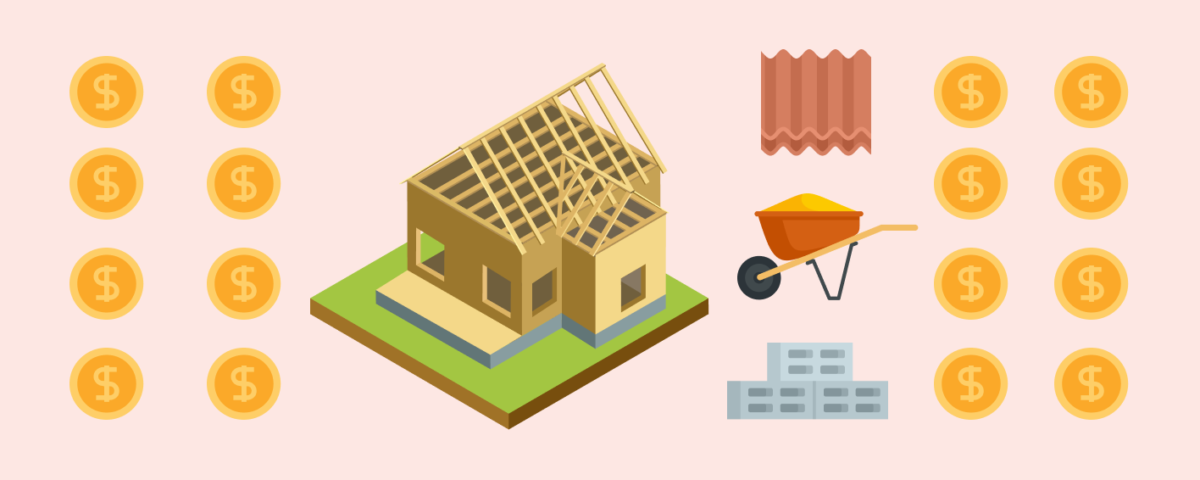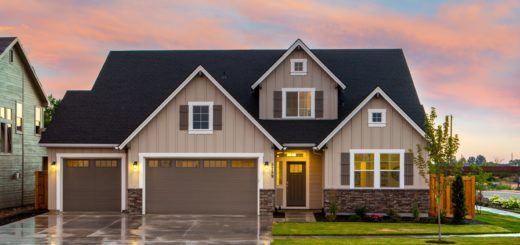Design Loans: What They Are and How They will Work
Our goal is to give you the tools and confidence you have to improve your finances. Although we all receive compensation from our companion lenders, whom we will generally identify, all opinions are our own. Credible Operations, Inc. NMLS # 1681276, can be referred to here as “Credible. ”
Building a home gives you an opportunity to possess everything you could possibly want in a home — within your budget, of course. You don’t have to be rich to make it happen, you just have to qualify for a construction loan.
Construction loans are different from traditional mortgages. For one, a traditional mortgage is a long-term loan that helps you pay for a current home, whereas a construction loan is a short-term loan that pays for the building of a new home and will convert into a traditional mortgage once the building process is completed.
Here’s what you need to know about the different types of construction loans and how they work:
What is a construction loan?
A construction loan allows you to borrow money to build or renovate a home.
When you buy a move-in ready home, the mortgage only needs to cover the cost and sometimes the closing costs.
Whenever you build a home (or buy a home you want to overhaul), you can find more steps involved: buying land, paying contractors, passing inspections. This more complicated process warrants a different type of loan.
What does a construction loan cover?
Construction loans pay for costs like:
- Land
- Architectural plans
- Design fees
- Building permits
- Construction materials
- Contractor labor
- Contingency reserves (in case assembling your project goes over budget)
- Interest reserves (to cover your interest expenses during construction)
- Closing costs
- Long-term financing once construction is complete
How do construction loans work?
A construction loan was created to pay for work in stages. This arrangement, called a “draw schedule, ” reduces the risk to both the borrower and the lender that the builder will get a huge sum up front and fail to complete the work.
It also reduces the risk of shoddy work, as the lender will need inspections after each phase of building before releasing more funds. In fact , construction lenders require borrowers to work with experienced builders that do a high volume of work and that are financially sound, licensed, and insured.
While you won’t find construction loans at Credible, we can help you secure a competitive rate on your next conventional mortgage. In just a few momemts, you can compare loan options from all of our partner lenders — it’s easy and free.
Construction loan rates
Construction loan interest rates vary by lender, but can be similar to existing home loan rates or a few percentage points higher. Having a strong borrower profile (such as an excellent credit score and debt-to-income ratio) and dealing with a lender that focuses on construction loans will help you be eligible for a the best possible rate.
Construction loans can have whether fixed or variable interest during the construction phase. In the event that you choose a construction loan with a variable interest rate, it’s important to understand the range within which your interest rate can fall and when you’ll manage to lock the rate in your permanent (post-construction) mortgage. Having said that, permanent loans can have adjustable rates, too.
If you don’t want that uncertainty, seek out a construction-to-permanent loan with a fixed rate so that the rate stays exactly the same during the construction phase and permanent phase.
Learn More: How Much Does It Cost to Build a House in 2021?
Construction loan types
There are several types of construction loans. Learn which type may be right for you.
Renovation loan
A renovation loan is just a type of construction loan that helps you buy an existing home and pay for any major structural and aesthetic changes. Examples of renovation loans include the FHA 203(k) loan and the Fannie Mae HomeStyle loan.
The important thing difference between a renovation loan and a regular purchase loan is that it provides you money to buy the house as well as to fix it up. This may mean borrowing additional money than the home is currently worth.
Construction-to-permanent loan
Similar to a renovation loan, a construction-to-permanent loan combines what would normally be two loans. It gives you both money to build the home and the long-term financing to pay for the home as time passes.
Instead, you’ll have one loan with one closing , one appraisal, and one set of closing costs . Plus, you’ll only have to qualify once. If your financial situation changes while your home is being built, you’ll still be able to move in.
A construction-to-permanent loan will also allow you to finance the purchase of the land if you don’t already own it. Or, if you have an existing lot loan, you should use a construction-to-permanent loan to cover it off.
FHA construction loan
Borrowers with smaller down payments and lower credit scores may want to consider an FHA construction loan. These loans require a borrower contribution of just 3. 5%. You can use your land equity toward your down payment if you’ve already purchased the land you’ll be constructing your home on.
The FHA’s construction loan has a single closing (meaning it’s a construction-to-permanent loan) and doesn’t require you to make any payments during the construction process. The interest rate may be fixed or variable all through construction.
The FHA also allows you to function as homebuilder if you’re a licensed general contractor. The minimum credit score to qualify is commonly 620 or 640, with respect to the lender.
VA construction loan
Qualifying military service members with VA loan eligibility may want to consider a VA construction loan to build a home. These loans allow up to 100% financing that covers both the land and home construction.
The VA guarantees two forms of construction loans:
- One-time close loan (construction-to-permanent)
- Two-time close loan (a construction loan followed by a separate permanent loan)
As its name suggests, a two-time close loan involves two separate closings and, in turn, requires you to pay two sets of closing fees.
When you get a VA construction loan, you won’t make any payments during the construction phase. Instead, your loan term is going to be shortened by the length of the construction period. If it takes a year to build your home, you’ll pay it off over 29 years instead of 30.
The VA requires the builder to cover a number of fees that borrowers might pay on other construction loans, such as loan interest all through construction, inspection fees, and hazard insurance premiums. Like other VA loans , the veteran must pay a VA funding fee.
Owner-builder construction loan
If you’re a professional builder and want to construct your own home, you can get an owner-builder loan by proving that you’re experienced, licensed, insured, and have a financially sound business. You’ll also need to meet the standard personal financial requirements.
This type of loan may be attractive if you want the cost savings, control, and personal satisfaction of building your home yourself.
One-time close construction loan
A one-time close construction loan (also called a single-close construction loan or construction-to-permanent loan, as discussed above) is any construction loan where a single loan covers your entire project. For example , a VA construction loan can also be an one-time close construction loan.
Over the months it takes to build your home, your financial situation and interest rates may change. These changes can impact loan costs and your capability to qualify for a permanent loan. In addition , each loan requires its own down payment, underwriting , and closing costs.
Learn More: Buying New Construction: Pros, Cons, Step-by-Step Guide
How to get a construction loan
Like with any home loan, you’ll need to meet a certain set of requirements to obtain a construction loan. Requirements vary by lender and by the type of construction loan you’re applying for.
Construction loan requirements
In general, here are the criteria you’ll want to meet to qualify for a construction loan:
- Credit score: You’ll want to have a credit score of at least 620 to qualify for an FHA or VA construction loan. For a Fannie Mae single-close loan, the minimum credit rating is 700.
- Down payment: For a conventional construction loan, you may need a deposit of as low as 5%. Sometimes you’ll need 10% to 20% of the sales price (land plus construction costs) or equity from your land value. An FHA construction loan requires a down payment of 3. 5%, while a VA construction loan doesn’t have any down payment requirement.
- Debt-to-income ratio: Your DTI should be 43% or lower. A higher ratio may be allowed if you otherwise have strong finances.
- Repayment plan: Construction loans usually require no payments or interest-only payments during the construction phase. You’ll make fully amortizing principal and interest payments once construction is complete.
Steps to get a construction loan
Here’s how to get a construction loan:
- Get pre-approved with a construction loan lender.
- Sign a contract with a builder. Make sure it has a loan contingency so you can exit the contract if you can’t finalize your construction loan.
- Submit your builder contract and the usual underwriting documents to your lender for approval. If you already own the land you will be building on, submit a copy of the deed, survey, and, if you bought the land recently, the settlement statement.
- Get yourself a “subject to completion” appraisal for your proposed home.
- Get final approval and close on your construction loan.
After closing, construction can begin. Your lender will pay your builder through a series of disbursements and will inspect each phase of work.
Once construction is complete, your construction loan is going to be modified to a permanent loan or you’ll obtain permanent financing.
Is it hard to get a construction loan?
It shouldn’t be hard to qualify for a construction loan if you’re working with a reputable builder and also you have a strong financial profile.
However , you will find more steps in the qualification process, so it could be more involved and simply take longer than qualifying for a traditional mortgage.
How to choose a construction loan lender
The first thing you should look for when choosing a construction lender is expertise with construction loans. A lender that processes a high volume of construction loans and understands their intricacies will be easier to work with.
Chances are you have never built a home before, so you’ll want to choose a lender who can help you manage the construction process most effortlessly. A lender who moved through the homebuilding experience numerous times will have a strong sense of how the process is supposed to work, exactly what do go wrong and how to avoid issues. They can help you make sure your build gets done correctly.




